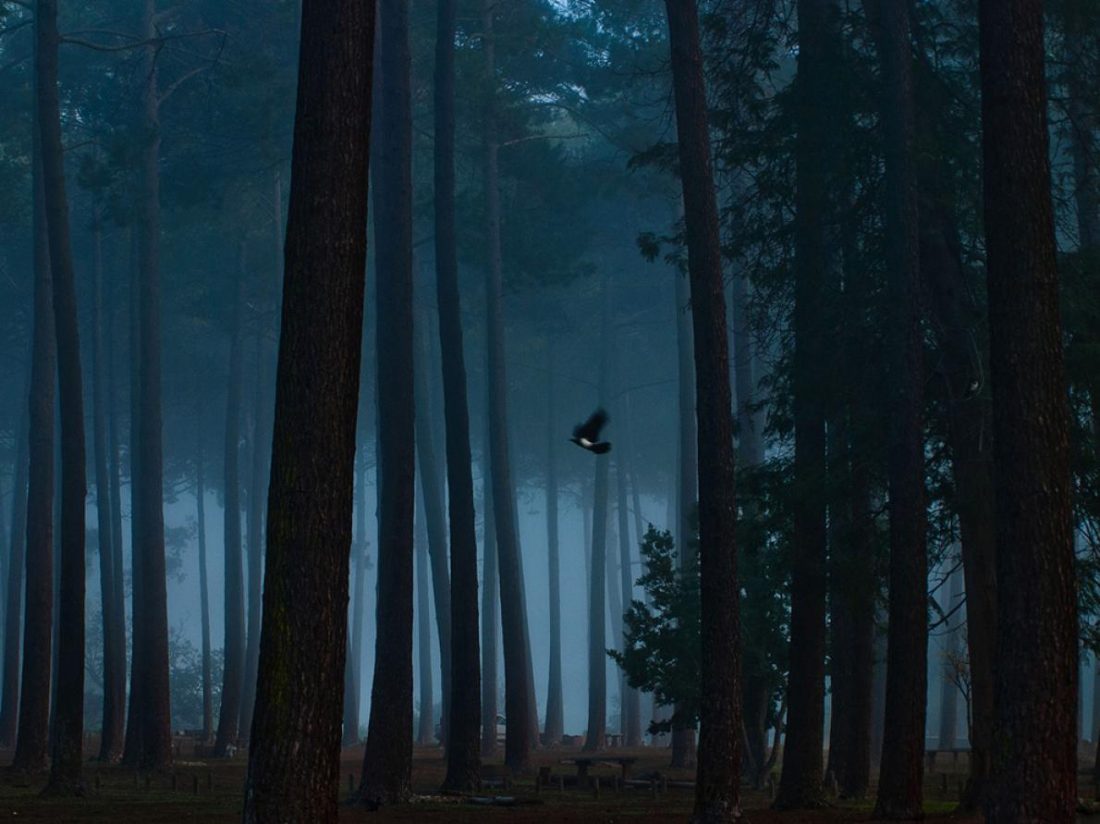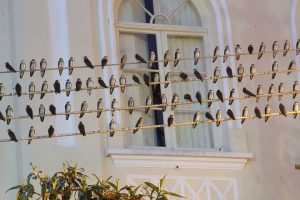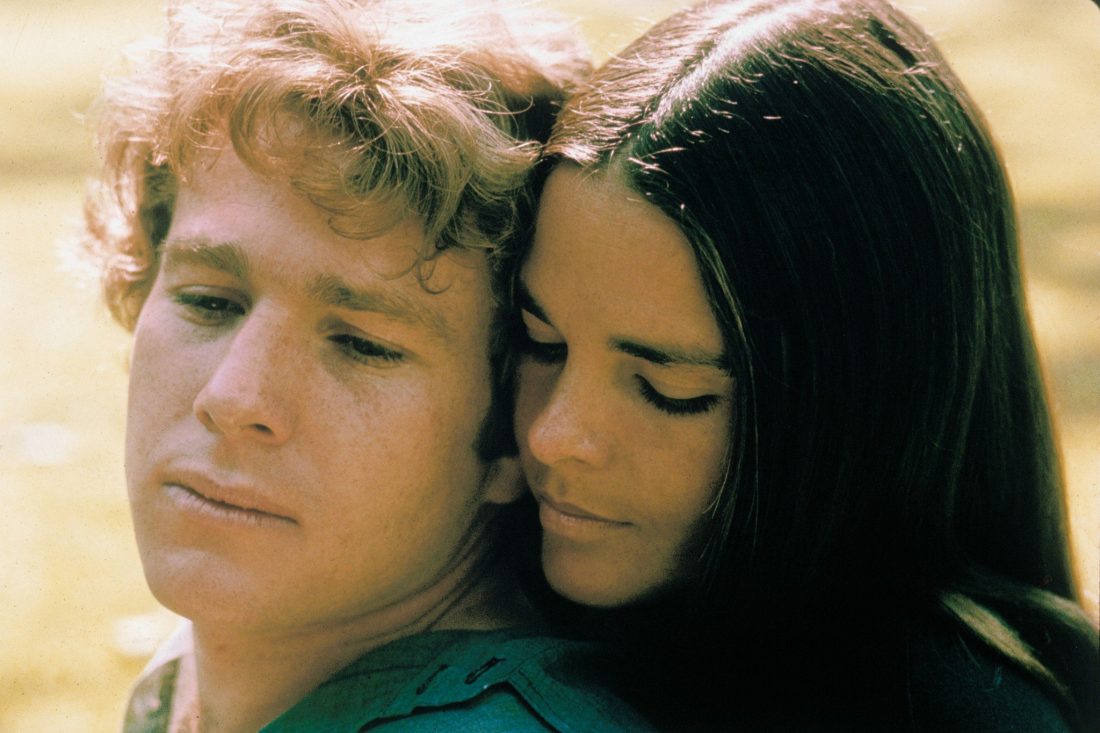By The Rivers Dark
 There are two kinds of people in this world: Winners and losers. This belief is celebrated in song and movies, entrenched in education and sport, set in the cement of corporate temples to Mammon. Dream big, reach for the stars, you can have it all, because, dammit, “you’re worth it!” This sense of entitlement, this determination to be worthy, might be a warm poultice on the inflammation of our unworthiness.
There are two kinds of people in this world: Winners and losers. This belief is celebrated in song and movies, entrenched in education and sport, set in the cement of corporate temples to Mammon. Dream big, reach for the stars, you can have it all, because, dammit, “you’re worth it!” This sense of entitlement, this determination to be worthy, might be a warm poultice on the inflammation of our unworthiness.
 For some, the race to “get ahead”, to set higher “bench marks” has become utterly meaningless. Some may be in the right place at the right time. Their moment of glory will be encoded in the birth chart as they elatedly clasp the Oscar; proudly stand on the winner’s podium. Success—or “failure”—may be predetermined by a sacred soul contract—a Divine Plan.
For some, the race to “get ahead”, to set higher “bench marks” has become utterly meaningless. Some may be in the right place at the right time. Their moment of glory will be encoded in the birth chart as they elatedly clasp the Oscar; proudly stand on the winner’s podium. Success—or “failure”—may be predetermined by a sacred soul contract—a Divine Plan.
Many of us are sailing across the rivers dark of change and uncertainty at this time in our collective evolution. We can merely determine or control the meaning we give to events as they unfold in our lives. England and America are in the throes of Pluto transits. The fabled “American Dream” has long faded. Britain is befuddled and confused. The long and painful process of re-defining national identity and a radical re-invention of what it is to be British or American.
 In societies where individualism and equality are valued and encouraged we may believe we alone are responsible for every aspect of our lives—our successes and our failures. We concoct our very own recipe for our happiness. Our ancestors could rail against misfortune, or the gods, or the circumstance of their birth. Today, self-made men and women sail solo. When we slam against the dark reef we cannot blame the gods, our parents, our ex-lover, or the government for our choices and perceptions. So, we perform the blood-letting when our scapegoated heroes fall from grace, baying like frenzied hounds at their blunders, their stupidity.
In societies where individualism and equality are valued and encouraged we may believe we alone are responsible for every aspect of our lives—our successes and our failures. We concoct our very own recipe for our happiness. Our ancestors could rail against misfortune, or the gods, or the circumstance of their birth. Today, self-made men and women sail solo. When we slam against the dark reef we cannot blame the gods, our parents, our ex-lover, or the government for our choices and perceptions. So, we perform the blood-letting when our scapegoated heroes fall from grace, baying like frenzied hounds at their blunders, their stupidity.
Wherever people gather together they create a language that binds them to the tribe, or anesthetises sensibilities to the savage brutality of what is really going on. In the military, it may be “friendly fire” or a “dust off” which shrouds the unspeakable horror of legalised mass murder or an air lift of mangled bodies. In the 24/7 world of advertising and marketing it will be power words that convey enthusiasm and the admonition to “Just do it” as we deliver the “deliverables” or disassociate from the pointlessness of our allotted tasks.
 Life is simple in the fast lane. Or is it? Success will be yours, if you work hard, have the right attitude, pointed focus, if your character and integrity are “good enough”. In the 1920s Bertrand Russell asked, “what will be the good of the conquest of leisure and health, if no one remembers how to use them?” His question is still pertinent today. I have a friend who works within the honeycomb cells of a large corporation. She sprinkles her sentences with hollow phrases that encompass our cultural comprehension of success: products, like people, must be “relevant”. By unspoken implication, if we are not “relevant” we are obsolete. Disposable. Like tooth brushes, celebrity marriages and old people.
Life is simple in the fast lane. Or is it? Success will be yours, if you work hard, have the right attitude, pointed focus, if your character and integrity are “good enough”. In the 1920s Bertrand Russell asked, “what will be the good of the conquest of leisure and health, if no one remembers how to use them?” His question is still pertinent today. I have a friend who works within the honeycomb cells of a large corporation. She sprinkles her sentences with hollow phrases that encompass our cultural comprehension of success: products, like people, must be “relevant”. By unspoken implication, if we are not “relevant” we are obsolete. Disposable. Like tooth brushes, celebrity marriages and old people.
We hunt success with bows that are stretched to breaking point. Like Love and happiness, success has myriad, illusive permutations. And yet, in this world of contrasts could it be that even in external “success” there will be some measure of loss or painful sacrifice? Perhaps in our tenacious climb to the summit we must cut loose our close family bonds? Eschew intimacy. Perhaps the trade-off will be a bloated ravaged body. Scarce unstructured, unaccountable time to enjoy the financial benefits of our long labour. Sometimes we seem to be rowing around in circles. The straining, the striving can wear us to a scooped-out void, our hands bloody and blistered on the oars. We forget our “holy song”. We do not know, we cannot see our own reflection in the moonlight as we panic on.
“What do you do?” A question that carries in its vapour trail a cloud of unspoken appraisals. A question that may be as difficult to answer as “Who are you?” as we comb through the interwoven layers of our complex human lives. Oriah Mountain Dreamer asks us to see each other through a different prism in her Invitation: “It doesn’t interest me what you do for a living. I want to know what you ache for and if you dare to dream of meeting your heart’s longing. It doesn’t interest me how old you are. I want to know if you will risk looking like a fool for love, for your dream, for the adventure of being alive…”
 Sometimes it is a dispassionate Collective Fate that steps in to decimate our lives – the savagery of a bombing, the watery obliteration of a tsunami, a deadly sheath of blistering flame. Sometimes it is a private tragedy that rips the windows and blows the roof off our reality. We may resume our striving unaltered, unshaken, defenses nailed back in place, just as they were before. Or we may painstakingly sift through the broken foundations of our hopes and dreams and find that nothing is and will ever be the same again. Our values, priorities, longings now sound forth in a quieter song. Perhaps then we may lift up the oars. Allow ourselves to be carried towards the jetty, accepting things are as they are, for now. We may smile, because we sense that this life is but a dream. In this part of the dream we can put down our bow, pack away our arrows, success no longer our quarry. Row, row, row your boat, gently down the stream. Merrily, merrily, merrily, merrily, life is but a dream.
Sometimes it is a dispassionate Collective Fate that steps in to decimate our lives – the savagery of a bombing, the watery obliteration of a tsunami, a deadly sheath of blistering flame. Sometimes it is a private tragedy that rips the windows and blows the roof off our reality. We may resume our striving unaltered, unshaken, defenses nailed back in place, just as they were before. Or we may painstakingly sift through the broken foundations of our hopes and dreams and find that nothing is and will ever be the same again. Our values, priorities, longings now sound forth in a quieter song. Perhaps then we may lift up the oars. Allow ourselves to be carried towards the jetty, accepting things are as they are, for now. We may smile, because we sense that this life is but a dream. In this part of the dream we can put down our bow, pack away our arrows, success no longer our quarry. Row, row, row your boat, gently down the stream. Merrily, merrily, merrily, merrily, life is but a dream.
Leonard Cohen delivers his unsurpassed deliverables—By the Rivers Dark





 In real life, our lipstick comes off when we kiss our lover goodbye. In real life, our noses run and our mascara meanders darkly down our cheeks when the people we love with all our hearts die too soon. In real life, there will be times when we stand alone at the threshold, not sure of who we are or who we are about to become.
In real life, our lipstick comes off when we kiss our lover goodbye. In real life, our noses run and our mascara meanders darkly down our cheeks when the people we love with all our hearts die too soon. In real life, there will be times when we stand alone at the threshold, not sure of who we are or who we are about to become.
 Demographics and photo-shopped aspirational women’s magazines aside, New Alpha Goddesses were rare in our blood-soaked human his-story—there was no room for a brand-new breed of Alpha Goddesses on Mount Olympus. Despite the sacrifices of The Suffragettes of the 19th and early 20th century and the courage of the Feminists of the ’60s, between the shadows of our politically correct social constructs there exists today the very same polarisation in gender and power that has existed for eons. In affluent societies, many women in midlife and in their elder years live in straightened circumstances after divorce or the death of their spouses. Women still do not, in the main, earn as much as their male counterparts. Women still bear, birth, and nurture the children. Each one of us will have thresholds to cross. Yet not all of us will have the luxury of time or sufficient financial security to say, “it’s my turn” as we support our children through their college years, nurse our dying parents, care for partners whose once virile bodies are failing. Perhaps we might discover that we don’t have the physical strength, the financial clout, the confidence, or even the inclination to be an New Alpha Goddess. Perhaps we might discover that we’ve
Demographics and photo-shopped aspirational women’s magazines aside, New Alpha Goddesses were rare in our blood-soaked human his-story—there was no room for a brand-new breed of Alpha Goddesses on Mount Olympus. Despite the sacrifices of The Suffragettes of the 19th and early 20th century and the courage of the Feminists of the ’60s, between the shadows of our politically correct social constructs there exists today the very same polarisation in gender and power that has existed for eons. In affluent societies, many women in midlife and in their elder years live in straightened circumstances after divorce or the death of their spouses. Women still do not, in the main, earn as much as their male counterparts. Women still bear, birth, and nurture the children. Each one of us will have thresholds to cross. Yet not all of us will have the luxury of time or sufficient financial security to say, “it’s my turn” as we support our children through their college years, nurse our dying parents, care for partners whose once virile bodies are failing. Perhaps we might discover that we don’t have the physical strength, the financial clout, the confidence, or even the inclination to be an New Alpha Goddess. Perhaps we might discover that we’ve never wanted to travel solo or drive a fast car and that being just who we are is enough for now.
never wanted to travel solo or drive a fast car and that being just who we are is enough for now.
 Doesn’t everything die at last, and too soon?
Doesn’t everything die at last, and too soon?
 Plato said that Love is a kind of madness. I imagine he was describing the heated arc of light that wraps its comet’s tail around our heart when we tumble into Love. That ferocious Love that ambushes us, unbuttons and unbolts us, throws us on the floor. It’s in a Love like this that we drink from the elixir of youth. It’s in a Love like this that we are re-birthed in the font of forgetfulness, swaddled in the white robes of Hope. It’s in a Love like this we become adolescents, young and energetic again, despite our age. It’s in Plato’s kind of Love, that we’re radiant, filled with the sweet green sap of confidence. Utterly mad.
Plato said that Love is a kind of madness. I imagine he was describing the heated arc of light that wraps its comet’s tail around our heart when we tumble into Love. That ferocious Love that ambushes us, unbuttons and unbolts us, throws us on the floor. It’s in a Love like this that we drink from the elixir of youth. It’s in a Love like this that we are re-birthed in the font of forgetfulness, swaddled in the white robes of Hope. It’s in a Love like this we become adolescents, young and energetic again, despite our age. It’s in Plato’s kind of Love, that we’re radiant, filled with the sweet green sap of confidence. Utterly mad. Our Love relationships may require periods of spaciousness, solitude, emotional or physical distance. They may demand acceptance of the aberrations, a baring of warts and all kinds of foul-smelling bits. Our relationship may end in literal form and yet continue in our dreams, in the fragments of memory that float like dust motes across the lyrics of a song.
Our Love relationships may require periods of spaciousness, solitude, emotional or physical distance. They may demand acceptance of the aberrations, a baring of warts and all kinds of foul-smelling bits. Our relationship may end in literal form and yet continue in our dreams, in the fragments of memory that float like dust motes across the lyrics of a song. There’s a nobility in loving despite fortune and circumstance. It takes courage to reclaim disowned feelings, modify behaviours that wound and flay. It takes courage to revision our own life and take back the projections so easily screened onto someone else’s life—“she has too many issues”, “he cannot do emotions”, or the classic cop out—I’m not “in love with him anymore”. Love is a paradox, a labyrinth where we may meet the Beast in the centre.
There’s a nobility in loving despite fortune and circumstance. It takes courage to reclaim disowned feelings, modify behaviours that wound and flay. It takes courage to revision our own life and take back the projections so easily screened onto someone else’s life—“she has too many issues”, “he cannot do emotions”, or the classic cop out—I’m not “in love with him anymore”. Love is a paradox, a labyrinth where we may meet the Beast in the centre. Robert Frost wrote in his glorious poem “the best way out is always through…” And, as we prepare to engage our energies for the long haul, as we clear away the thorny brambles that obstruct our path, our hands will bleed and we may thirst for something sweeter, cooler, easier. Our impatience will be tested. We will become discouraged and disheartened. And yet, when we stop looking for the epiphany, we may feel that with each new day, with each new awakening, with each new stumble, we are moving a little closer.
Robert Frost wrote in his glorious poem “the best way out is always through…” And, as we prepare to engage our energies for the long haul, as we clear away the thorny brambles that obstruct our path, our hands will bleed and we may thirst for something sweeter, cooler, easier. Our impatience will be tested. We will become discouraged and disheartened. And yet, when we stop looking for the epiphany, we may feel that with each new day, with each new awakening, with each new stumble, we are moving a little closer. When we fall into Love, we fall into the imagination. Modern psychology echoes this belief and scientific research now “proves” that our nervous systems are not self-contained.
When we fall into Love, we fall into the imagination. Modern psychology echoes this belief and scientific research now “proves” that our nervous systems are not self-contained.

 Today we casually or consciously un-couple. Today our friends have benefits and Tinder is our one-stop 24-7, pocket-sized convenience store for regret-free hook-ups with just one swipe. Ours is a Supernova Consumer Culture where our Perfectmatch.com relationships have short sell-by dates.
Today we casually or consciously un-couple. Today our friends have benefits and Tinder is our one-stop 24-7, pocket-sized convenience store for regret-free hook-ups with just one swipe. Ours is a Supernova Consumer Culture where our Perfectmatch.com relationships have short sell-by dates.
 Pluto’s transit through Leo between 1937-1958 produced the narcissistic “Me Generation” and as each new generation pushes against the ignorance and excesses of the previous one. The Divine Child (or spoilt brat) rebelled against his staid Cancerian Parents. This is the generation that has destroyed vast tracts of pristine forest and coastline to erect golf courses and holiday resorts or set off to “find themselves”. This is the generation of the hedonistic “Rock Star” and the individual who spends years lying on the therapist’s couch talking about his unhappy childhood. This is the generation obsessed with staying forever young. This is the generation that divorces because they deserve to be happy! Baby Boomer, and author of the bestselling, Something More, Sarah Ban Breathnach says it all: “Do I deserve to be happy? Damn right I do. Am I ever going to be unhappy again? Not if I can help it.” … now you can reshape, reclaim and recreate the world in our own image.”
Pluto’s transit through Leo between 1937-1958 produced the narcissistic “Me Generation” and as each new generation pushes against the ignorance and excesses of the previous one. The Divine Child (or spoilt brat) rebelled against his staid Cancerian Parents. This is the generation that has destroyed vast tracts of pristine forest and coastline to erect golf courses and holiday resorts or set off to “find themselves”. This is the generation of the hedonistic “Rock Star” and the individual who spends years lying on the therapist’s couch talking about his unhappy childhood. This is the generation obsessed with staying forever young. This is the generation that divorces because they deserve to be happy! Baby Boomer, and author of the bestselling, Something More, Sarah Ban Breathnach says it all: “Do I deserve to be happy? Damn right I do. Am I ever going to be unhappy again? Not if I can help it.” … now you can reshape, reclaim and recreate the world in our own image.” Divorce is The Boomers’ legacy. And even in mid and late life this star-dust golden generation makes it up as they go along.
Divorce is The Boomers’ legacy. And even in mid and late life this star-dust golden generation makes it up as they go along. y opt for a LAT arrangement – Living Alone Together – with partners they may despise at worse or tolerate at best.
y opt for a LAT arrangement – Living Alone Together – with partners they may despise at worse or tolerate at best.

 I met an old lady once, almost a hundred years old, and she told me, there are only two questions that human beings have ever fought over, all through history. How much do you love me? And Who’s in charge―Elizabeth Gilbert
I met an old lady once, almost a hundred years old, and she told me, there are only two questions that human beings have ever fought over, all through history. How much do you love me? And Who’s in charge―Elizabeth Gilbert

 “We always marry someone with the purpose of finishing our childhood,” says psychologist Harville Hendrix. And we’re unconsciously drawn to people who will guarantee a re-enactment of the old, familiar relationship dynamics we grew up with.
“We always marry someone with the purpose of finishing our childhood,” says psychologist Harville Hendrix. And we’re unconsciously drawn to people who will guarantee a re-enactment of the old, familiar relationship dynamics we grew up with.

 Mercury’s Retrograde cycle is an opportunity to be honest with our selves about our style of relating, the part we play in polluting our relationship space. So, how do we conceal our own vulnerability behind the cement wall of intractable beliefs about our partner? How do we own our wants and desires? How do we listen? How do we set boundaries and assert ourselves? How do we back off generously? How do we embrace and accept the relationship we have? How do we actively champion our partner and our relationship?
Mercury’s Retrograde cycle is an opportunity to be honest with our selves about our style of relating, the part we play in polluting our relationship space. So, how do we conceal our own vulnerability behind the cement wall of intractable beliefs about our partner? How do we own our wants and desires? How do we listen? How do we set boundaries and assert ourselves? How do we back off generously? How do we embrace and accept the relationship we have? How do we actively champion our partner and our relationship? “Every thought you produce, anything you say, any action you do, it bears your signature”, says Thich Nhat Hanh. Today, let’s bring new vision, self-reflection and healing to our words. Today, we have a choice to re-write our signature.
“Every thought you produce, anything you say, any action you do, it bears your signature”, says Thich Nhat Hanh. Today, let’s bring new vision, self-reflection and healing to our words. Today, we have a choice to re-write our signature.